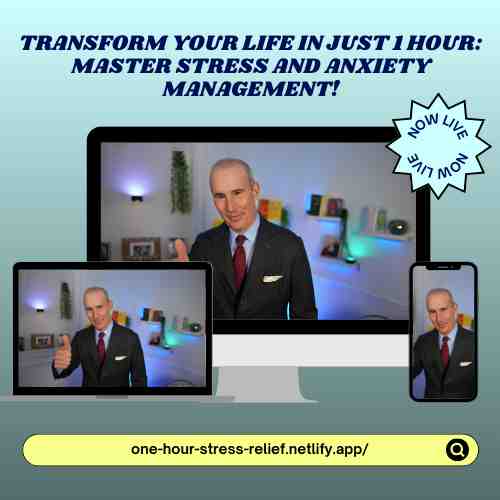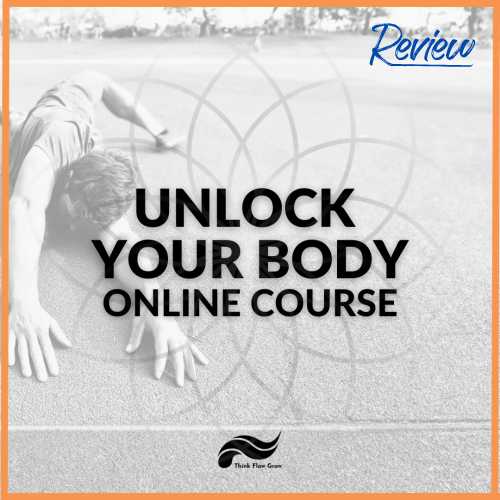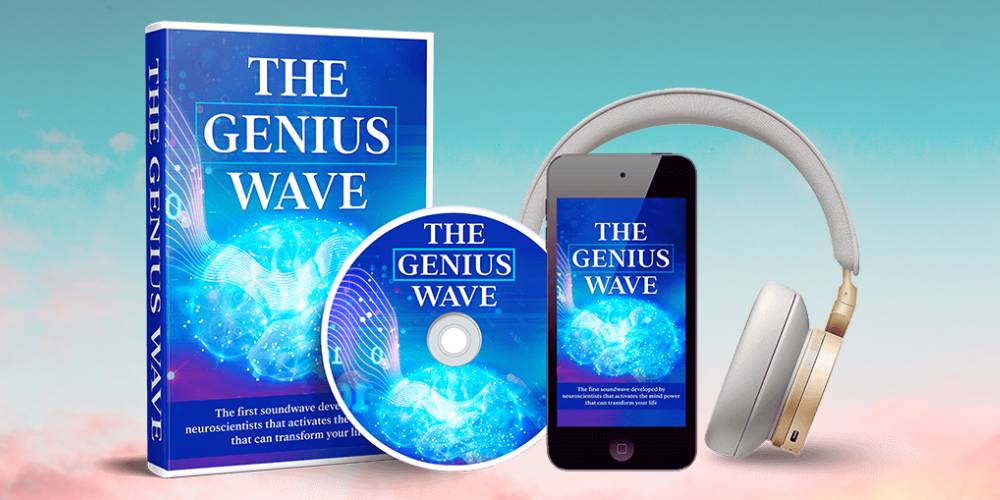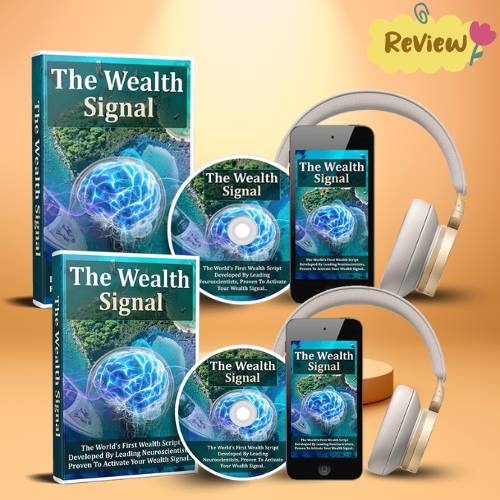Introduction: The Power of Mindfulness for Focus and Clarity
Advanced Mindfulness Tools: In today’s fast-paced world, distractions seem to pop up every minute. Whether it’s the endless notifications on your phone, the noise of social media, or a never-ending to-do list, staying focused feels harder than ever. A study from the University of California found that it takes about 23 minutes to regain focus after being distracted. This constant cycle of interruptions can leave you feeling stressed, scattered, and less productive.
But imagine if you could train your mind to stay calm and fully present, no matter what chaos surrounds you. That’s where mindfulness comes in. It’s a way to tune out the noise and refocus on what truly matters. Beyond basic meditation, advanced mindfulness tools take things further. They help you sharpen your attention, improve emotional balance, and boost productivity in ways you might not have thought possible.
Mindfulness is more than a trend; it’s backed by science. Studies show that practicing mindfulness for just 10 minutes a day can lower stress, improve memory, and enhance problem-solving skills. It’s not just about finding peace; it’s about building the mental strength to tackle life’s challenges.
If you’re feeling overwhelmed by distractions or struggling to stay productive, these tools can be a game-changer. This guide will introduce you to some of the most effective mindfulness techniques, showing you how they can reshape the way you work and live. Let’s dive in and discover how mindfulness can help you take back control of your focus and clarity.
Key Takeaways
- Advanced mindfulness tools sharpen attention, reduce distractions, and improve mental clarity, helping you stay present in daily tasks.
- Programs like Master Stress and Anxiety Management, Unlock Your Body, SpryFuel, The Genius Wave, The Power of 15, The Wealth Signal, and Billionaire Brain Wave offer effective tools to enhance focus, reduce stress, improve creativity, and boost mental performance.
- Mindfulness techniques help regulate emotions and keep stress in check, enabling a calm and focused mind.
- Regular mindfulness practice helps build resilience, allowing you to handle challenges and setbacks more effectively.
- Studies show mindfulness tools can increase brain activity in areas responsible for decision-making, problem-solving, and focus.
- Start small by setting aside time for daily practice and using tools like apps, and make mindfulness a part of everyday activities to experience lasting benefits.
Chapter 1: What Are Advanced Mindfulness Tools?
Mindfulness is all about being present in the moment and paying attention to your thoughts and feelings without judgment. You’ve probably heard of basic mindfulness techniques like deep breathing, meditation, or focusing on your senses. But advanced mindfulness tools go beyond these simple methods, offering a more powerful and transformative way to manage your mind.
What Makes Advanced Mindfulness Tools Different?
Advanced mindfulness tools build upon the foundation of basic mindfulness, but they include techniques that help you control your mental and emotional state in more dynamic ways. While traditional mindfulness practices often focus on awareness, advanced tools help you actively change the way you think and respond to the world around you.
Some of these tools include:
- Cognitive Techniques: These help you challenge and reframe negative or distracting thoughts. For example, if you find yourself getting caught up in worries or self-doubt, you can use cognitive mindfulness tools to break those thought patterns and refocus.
- Emotional Awareness: This is the practice of recognizing and managing your emotions without letting them control you. Emotional awareness helps you stay calm and composed, even during stressful situations.
- Sensory Engagement: This involves using your senses to ground yourself in the present moment. Techniques like mindful listening, body scanning, or focusing on the feeling of touch can help you refocus your mind.
How Do Advanced Mindfulness Tools Help You?
When you use these advanced tools regularly, they can help you in several important ways:
- Better Focus: Advanced tools train your brain to concentrate on one thing at a time, reducing distractions.
- Emotional Balance: By recognizing and managing your emotions, you can stay calm and avoid overreacting, even in difficult situations.
- Increased Clarity: With improved focus and emotional awareness, you’ll be able to make decisions more easily and think more clearly.
The Science Behind Advanced Mindfulness Tools
Research has shown that mindfulness, especially when practiced with advanced tools, can change how your brain works. Studies from Harvard University suggest that mindfulness can actually increase the size of the hippocampus, the part of the brain responsible for memory and emotional regulation. Additionally, mindfulness has been shown to reduce activity in the amygdala, the area of the brain responsible for stress and anxiety.
Examples of Advanced Mindfulness Tools
To give you a better idea, here are a few examples of advanced mindfulness tools:-
| Mindfulness Tool | What It Does | Benefits |
| Cognitive Behavioral Techniques (CBT) | Helps you challenge negative or distracting thoughts. | Reduces stress, boosts focus. |
| Mindful Movement (e.g., Yoga) | Combines physical movement with mindfulness. | Improves focus, balance, and body awareness. |
| Body Scan Meditation | Involves focusing on each part of your body, noticing sensations. | Increases relaxation and awareness. |
| Gratitude Practices | Focusing on what you’re thankful for in the moment. | Improves mood, boosts emotional well-being. |
By regularly practicing these tools, you can transform your ability to stay focused, calm, and clear-headed, even in the busiest and most challenging moments.
Chapter 2: Why Should You Use Advanced Mindfulness Tools?
In today’s world, it’s easy to feel overwhelmed. With constant demands on our time and attention, staying focused can be a real challenge. The good news is that advanced mindfulness tools can help you not only boost your focus and productivity but also reduce stress and anxiety. Let’s dive into how these tools can make a difference in your life.
Boosting Focus and Productivity
In our modern, fast-paced world, staying focused can feel like an uphill battle. You may try to juggle several tasks at once, but research shows that multitasking isn’t as effective as we think. In fact, a study by the American Psychological Association found that multitasking can actually reduce productivity by up to 40%.
Advanced mindfulness tools help you train your brain to focus on one thing at a time, which can greatly enhance your efficiency. Practices like mindful breathing or cognitive techniques allow you to redirect your attention and avoid distractions, leading to better focus on the task at hand. This not only improves your productivity but also helps you complete tasks with greater accuracy and efficiency.
Key benefits of using advanced mindfulness tools for focus:
- Improved Attention: Mindfulness helps you stay present, so you can fully engage with the task at hand.
- Better Time Management: Mindfulness helps you prioritize tasks and use your time more wisely.
- Enhanced Memory and Learning: Mindfulness tools like meditation can help improve your memory, making it easier to recall important information.
Studies show that mindfulness training increases activity in the prefrontal cortex, the part of the brain responsible for decision-making and focus. In fact, research from the University of California showed that just eight weeks of mindfulness training could increase your cognitive function and improve your ability to focus.
Reducing Stress and Anxiety
In our busy lives, stress and anxiety often feel unavoidable. According to the American Institute of Stress, nearly 80% of people feel stressed at work, and this stress can take a heavy toll on both our mental and physical health. Chronic stress leads to higher levels of cortisol (the stress hormone), which can affect your mood, immune system, and overall well-being.
Mindfulness, especially when using advanced tools, is a proven way to reduce stress. Research has shown that mindfulness practices can lower cortisol levels, reduce anxiety, and help you respond to stress in a healthier way. Instead of reacting impulsively to challenges, mindfulness encourages you to pause, assess the situation, and choose a more calm, thoughtful response.
How advanced mindfulness tools help reduce stress and anxiety:
- Lower Cortisol Levels: Mindfulness practices have been shown to reduce stress hormones, leading to a calmer state of mind.
- Improved Emotional Regulation: Mindfulness helps you manage emotions, preventing anxiety and frustration from taking over.
- Better Stress Response: Advanced tools teach you to handle challenges in a calm, measured way, reducing the negative impact of stress.
In one study published in Psychoneuroendocrinology, participants who practiced mindfulness had significantly lower cortisol levels after just a few weeks of training. By incorporating these tools into your daily life, you can experience a greater sense of calm, even in the most stressful situations.
Mindfulness Tools That Help You Manage Stress
| Mindfulness Tool | How It Helps with Stress | Benefits |
| Deep Breathing Exercises | Slows down the heart rate and calms the nervous system. | Reduces stress and improves relaxation. |
| Progressive Muscle Relaxation | Tensions are released from your body in a gradual process. | Eases physical tension, promoting calm. |
| Visualization | Involves imagining peaceful scenes to reduce stress. | Enhances emotional calm and clarity. |
| Mindful Walking | Combines movement with mindfulness to focus your attention. | Eases anxiety, refreshes the mind. |
Using advanced mindfulness tools to reduce stress is not just about feeling calm. It’s about changing your relationship with stress itself. By incorporating these practices into your life, you can face daily challenges with a clearer mind and a more balanced emotional state.
The Science Behind Mindfulness for Stress Reduction
The scientific benefits of mindfulness for stress management are well-documented. Studies show that regular mindfulness practice can alter the structure of the brain, increasing activity in areas that control emotions and reducing activity in areas responsible for stress reactions. For example, mindfulness has been shown to reduce activity in the amygdala, the part of the brain responsible for triggering fear and stress.
The more you practice mindfulness, the better equipped you become to manage the demands of modern life. Whether it’s dealing with work pressure or managing personal challenges, advanced mindfulness tools help you stay calm, centered, and focused on what matters most.

Chapter 3-A: 7 Advanced Mindfulness Tools to Boost Your Focus
Now that we understand why advanced mindfulness tools are essential for enhancing focus and managing stress, let’s dive into seven effective techniques that you can start using today to take your mindfulness practice to the next level. These tools not only improve your mental clarity but also promote emotional well-being and better overall productivity.
1. Mindful Breathing Techniques
Mindful breathing is one of the simplest yet most powerful mindfulness practices. It involves focusing your attention on your breath, helping you stay present and calm. Advanced breathing techniques, like diaphragmatic breathing and box breathing, can offer even greater benefits by helping you relax deeply and sharpen your focus.
Diaphragmatic Breathing
This technique involves breathing deeply into the diaphragm, rather than shallowly into the chest. By expanding your diaphragm fully, you activate the parasympathetic nervous system, which helps calm both the body and the mind. Research shows that diaphragmatic breathing reduces stress and can even lower heart rate and blood pressure.
Box Breathing (4-4-4-4 Method)
Box breathing is a simple technique where you breathe in for four counts, hold for four, exhale for four, and pause for four. This rhythmical breathing pattern helps center your mind, reduce stress, and improve focus. It’s a great tool to use before a meeting or when you need to refocus during a long day.
Key Benefits:
- Helps reduce stress and anxiety
- Promotes relaxation and calm
- Improves mental clarity and focus
2. Cognitive Behavioral Mindfulness
Cognitive Behavioral Mindfulness combines mindfulness with Cognitive Behavioral Therapy (CBT). This tool is designed to help you recognize and change unproductive thought patterns that can negatively impact your focus. By becoming more aware of your thoughts and how they affect your emotions and actions, you can interrupt the cycle of distraction and refocus your attention on the present moment.
Incorporating CBT into your mindfulness practice allows you to challenge automatic negative thoughts, helping you break free from worry and mental clutter. By doing so, you can achieve better concentration and mental clarity.
Key Benefits:
- Helps identify and change negative thought patterns
- Breaks the cycle of worry and distraction
- Enhances cognitive flexibility and focus
3. Sensory Awareness Practices
Sensory awareness is about becoming fully attuned to your surroundings. Engaging your senses can help you ground yourself and refocus when your attention starts to wander. Whether it’s listening to sounds, observing visual details, or noticing the sensations of touch, sensory practices help bring you back to the present moment.
For example, you can practice mindful listening by focusing completely on the sounds around you, whether it’s the hum of traffic or the sound of birds chirping. This shifts your focus away from distractions and centers your attention.
Key Benefits:
- Helps bring your focus back to the present
- Encourages mindfulness in everyday activities
- Reduces distractions and mental clutter
4. Mindful Movement and Yoga
Mindful movement practices, such as yoga or tai chi, are excellent tools for improving focus. These activities combine movement with mindfulness, allowing you to tune into your body and stay present. The deliberate, slow movements in yoga help reduce stress, increase body awareness, and promote mental clarity.
Practicing mindful movement not only relaxes the body but also sharpens the mind. When you focus on each movement, you can clear your mind of distractions and increase your ability to concentrate on tasks.
Key Benefits:
- Promotes mental and physical relaxation
- Increases body awareness and mental clarity
- Improves overall focus and concentration
5. Visualization Techniques
Visualization is a powerful tool that helps you mentally prepare for success. By imagining yourself in a focused and calm state, you can rewire your brain to align with your goals. This technique works by training your mind to visualize your desired outcomes, whether it’s completing a task successfully or staying calm under pressure.
Research shows that visualization can improve performance, increase motivation, and reduce anxiety. By visualizing your success, you’re not only enhancing focus but also building confidence in your ability to accomplish tasks.
Key Benefits:
- Enhances focus and mental preparation
- Boosts motivation and confidence
- Reduces anxiety and mental blocks
6. Guided Meditation for Focus
Guided meditation involves listening to an instructor or using an app to guide you through a mindfulness practice. This technique is especially useful for beginners or those who have difficulty focusing on their own. A guided session typically includes prompts that encourage you to focus on your breath, body sensations, or a particular intention, helping to calm the mind and improve concentration. Over time, practicing guided meditation can increase your ability to concentrate and stay present, even when distractions arise.
Key Benefits:
- Provides structure and guidance for meditation practice
- Helps beginners improve focus and mindfulness
- Enhances concentration and mental clarity over time
7. Mindful Journaling
Journaling is an effective way to process thoughts and emotions, and when done mindfully, it becomes a powerful tool for improving focus. Mindful journaling involves writing with full attention and presence, reflecting on both your experiences and your current state of mind.
This practice helps you clear mental clutter, organize your thoughts, and gain clarity about what’s most important. By engaging in mindful journaling, you can develop a deeper understanding of yourself and your thought patterns, leading to greater mental clarity and focus.
Key Benefits:
- Helps clear mental clutter and gain clarity
- Encourages reflection and self-awareness
- Enhances focus and decision-making skills
Table: Benefits of Advanced Mindfulness Tools
| Mindfulness Tool | Focus Benefits | Mental Clarity Benefits |
| Mindful Breathing Techniques | Helps center attention and reduce distractions. | Promotes calm and clarity through relaxation. |
| Cognitive Behavioral Mindfulness | Breaks negative thought patterns that affect focus. | Clears mental clutter, enhancing focus. |
| Sensory Awareness Practices | Refocuses attention on the present moment. | Enhances awareness and mental clarity. |
| Mindful Movement and Yoga | Strengthens the ability to stay present and focused. | Promotes body-mind connection and clarity. |
| Visualization Techniques | Trains the mind to focus on goals and success. | Reduces anxiety and clears mental blocks. |
| Guided Meditation for Focus | Improves concentration and mental clarity. | Provides structured focus and calm. |
| Mindful Journaling | Organizes thoughts and enhances focus. | Clears mental clutter for better decision-making. |
By incorporating these advanced mindfulness tools into your daily routine, you can experience lasting improvements in both your focus and mental clarity. Whether you’re looking to manage stress, increase productivity, or simply improve your overall well-being, these tools can help you reach your goals with greater ease and confidence.
Chapter 3-B – Top 7 Advanced Mindfulness Programs
1. Master Stress and Anxiety Management in 1 Hour!

Master Stress and Anxiety Management in 1 Hour is a short, practical course designed for those who need quick and effective solutions to combat stress. In just one hour, you’ll learn essential mindfulness tools and stress-relieving exercises that help build resilience and improve emotional regulation.
The course includes lifetime access, guided meditations, and an eBook for deeper learning. It’s perfect for busy individuals who are looking for a fast, efficient way to manage their stress levels and improve focus.
Key Benefits:
- 60-minute course with lifetime access
- Includes guided meditations and bonus eBook
- Suitable for beginners
- 60-day refund policy
Best For: Beginners and busy professionals looking for a quick stress-management solution.
2. Unlock Your Body Program
The Unlock Your Body course offers a holistic approach to physical and mental well-being. With 75+ video lessons, it focuses on improving flexibility, mobility, and mindfulness in just 5-15 minutes a day.
This course requires no special equipment, making it perfect for beginners and those with busy schedules. It includes 25+ routines, live sessions, and downloadable resources that focus on both mental and physical wellness.

Key Benefits:
- 75+ video lessons and 25+ routines
- Accessible on multiple devices
- No special equipment required
- 60-day refund policy
Best For: Those seeking a flexible, effective approach to mindfulness and physical wellness.
3. SpryFuel Program: Relax in Just 10 Minutes a Day!

SpryFuel is a sound frequency-based therapy platform offering over 750 programs designed to enhance mental clarity, reduce stress, and improve physical health. In just 10 minutes a day, you can improve focus and achieve better overall well-being. It’s a scientifically backed system designed for anyone seeking to reduce stress or improve mental performance.
Key Benefits:
- Over 750 sound frequency programs
- Requires just 10 minutes a day
- Scientifically proven to improve focus and relaxation
- Suitable for anyone looking to improve mental clarity
Best For: Busy individuals who want quick, effective mindfulness techniques.
4. The Genius Wave Program
The Genius Wave program uses brainwave entrainment technology to enhance creativity, focus, and cognitive performance. By utilizing specific sound frequencies, the program helps improve memory, problem-solving abilities, and overall mental clarity. It’s especially useful for students, professionals, and creatives looking to boost their cognitive abilities.

Key Benefits:
- Enhances creativity, focus, and memory
- Uses brainwave entrainment technology
- Scientifically backed
- 60-day money-back guarantee
Best For: Students, professionals, and creatives looking to boost cognitive performance and focus.
5. The Mental Time Travel System Program

The Mental Time Travel System by Dr. Joe Vitale is designed to reshape your mindset and attract health, wealth, and peace. This program helps you revisit past experiences and reframe them positively, which boosts your emotional resilience and mental focus. It combines video lessons, audio guides, and bonuses for a comprehensive mindset transformation.
Key Benefits:
- Includes video, audio, and bonus materials
- Focuses on positive mindset reshaping
- Lifetime access and 60-day refund policy
- Easy-to-use format
Best For: Those seeking a deep mindset shift for long-term focus and mental resilience.
6. The Wealth Signal Program
The Wealth Signal program uses neuroscience-based audio technology to activate the “Wealth Signal” in your brain, unlocking your potential for financial success and abundance. This unique program is designed for individuals looking to enhance their financial well-being and attract positive changes into their life with just 5 minutes of daily listening.

Key Benefits:
- 5-minute daily practice
- Neuroscience-based audio technology
- Includes a nine-word shortcut for activating wealth
- 60-day money-back guarantee
Best For: Anyone interested in financial growth and personal development through sound-based mindfulness tools.
7. Billionaire Brain Wave Program

The Billionaire Brain Wave program uses Theta wave sound frequencies to rewire your brain for wealth, creativity, and intuition. With just 7 minutes of daily listening, you can improve your mental clarity and attract financial success. The program is easy to use and backed by science, with many positive user reviews.
Key Benefits:
- 7 minutes of listening per day
- Uses Theta wave sound frequencies
- 60-day money-back guarantee
- Accessible and easy to use
Best For: Anyone seeking an easy, science-backed approach to mental clarity and financial success.
Comparison Table of Advanced Mindfulness Programs
| Program | Rating | Duration | Key Features | Refund Policy |
| Master Stress and Anxiety Management | 4.1/5 | 1 Hour | Stress management tools, guided meditations, eBook | 60 days |
| Unlock Your Body Course | 3.8/5 | 75+ Lessons | Flexibility, strength, mindfulness, video lessons | 60 days |
| SpryFuel | 4.3/5 | 10 minutes/day | Sound frequency-based therapy, over 750 programs | 30 days |
| The Genius Wave | 4/5 | Varies | Brainwave entrainment, enhances cognitive performance | 60 days |
| Mental Time Travel | 4.4/5 | Varies | Mindset transformation, video/audio guides | 60 days |
| The Wealth Signal | 4/5 | 5 minutes/day | Neuroscience-based, financial success | 60 days |
| Billionaire Brain Wave | 4/5 | 7 minutes/day | Theta wave frequencies, wealth activation | 60 days |
These advanced mindfulness programs provide an array of tools to enhance focus, reduce stress, and boost cognitive performance. Whether you’re looking for quick solutions or in-depth, long-term strategies, these programs can help you integrate mindfulness practices into your routine for greater productivity, emotional balance, and overall well-being.
Chapter 4: How Advanced Mindfulness Tools Improve Focus
Advanced mindfulness tools go beyond simply helping you stay present. They have the power to sharpen your focus, regulate your emotions, and build mental resilience. These tools, when practiced regularly, can make a noticeable difference in your ability to concentrate, stay calm under pressure, and keep a positive mindset, even in challenging situations.
Sharpening Your Attention Span
One of the most immediate benefits of using advanced mindfulness tools is improved focus. When you practice mindfulness techniques, your brain becomes more adept at filtering out distractions. Whether you’re working, studying, or simply having a conversation, your ability to stay present and concentrate improves.
Studies show that mindfulness practices can increase attention span and reduce mind-wandering. This is because mindfulness helps train your brain to stay engaged in the present moment, making it easier to focus on one task at a time. As you continue practicing, your ability to ignore distractions and maintain focus for longer periods will naturally improve.
Key Benefits:
- Reduces mental distractions
- Increases sustained attention
- Improves cognitive performance in daily tasks
Enhancing Emotional Regulation
Mindfulness also plays a significant role in regulating your emotions. Emotional regulation is the ability to manage and respond to emotional experiences in a balanced way, without letting them overwhelm you. When you face stress, frustration, or anxiety, mindfulness tools help you stay grounded and calm.
By practicing techniques like mindful breathing or guided meditation, you can learn to pause before reacting impulsively. Instead of being driven by strong emotions, you become more able to choose how you respond. This emotional control is crucial for staying focused, especially in high-pressure or stressful situations.
Key Benefits:
- Reduces emotional reactivity
- Promotes calm and clear decision-making
- Improves relationships and communication skills
Building Mental Resilience
The more you practice mindfulness, the more resilient your mind becomes. Resilience is the ability to bounce back from setbacks, manage stress effectively, and maintain focus in difficult situations.
Advanced mindfulness tools can help you cultivate this mental strength. For example, by practicing cognitive behavioral mindfulness, you learn to recognize negative thought patterns and replace them with more positive, constructive thoughts. This shift in mindset helps you approach challenges with a growth mindset, keeping your long-term goals in focus.
In addition, mindful movement practices like yoga or tai chi can help you manage stress and physical tension, making it easier to recover after difficult situations. Building mental resilience through mindfulness helps you stay calm, focused, and motivated when obstacles arise.
Key Benefits:
- Increases ability to handle stress and setbacks
- Enhances problem-solving and decision-making
- Fosters a positive, growth-oriented mindset
Table: How Advanced Mindfulness Tools Improve Focus
| Mindfulness Tool | Focus Benefits | Emotional Regulation | Mental Resilience |
| Mindful Breathing Techniques | Improves attention span and focus. | Calms the mind during stressful moments. | Helps you recover from stress and refocus quickly. |
| Cognitive Behavioral Mindfulness | Enhances concentration by changing negative thought patterns. | Promotes emotional awareness and better reactions. | Strengthens resilience by changing thought patterns. |
| Sensory Awareness Practices | Helps bring your focus back to the present. | Increases self-awareness and emotional control. | Develops adaptability in challenging situations. |
| Mindful Movement and Yoga | Boosts focus through movement and body awareness. | Promotes calmness and emotional balance. | Enhances mental toughness and stress management. |
| Visualization Techniques | Improves mental focus by setting clear goals. | Helps manage anxiety by focusing on desired outcomes. | Builds confidence and emotional strength. |
| Guided Meditation for Focus | Strengthens the ability to stay present and concentrate. | Promotes deep relaxation and emotional balance. | Increases mental clarity and perseverance. |
| Mindful Journaling | Improves focus by organizing thoughts and ideas. | Helps process and understand emotions. | Fosters mental clarity and reduces emotional reactivity. |
By incorporating these mindfulness tools into your daily routine, you’ll experience improvements not only in your ability to focus but also in your emotional control and mental resilience. Over time, you’ll find that mindfulness doesn’t just help you focus; it transforms your entire approach to challenges, making you more centered, calm, and focused on achieving your goals.

Chapter 5: The Science Behind Mindfulness and Focus
Mindfulness has become a buzzword in recent years, but there’s solid science backing its power to improve focus and brain function. Multiple studies have shown that mindfulness practices, especially advanced techniques, can positively impact the brain, enhancing attention, decision-making, and emotional regulation. Let’s dive into the science behind mindfulness and its effects on focus.
How Mindfulness Affects the Brain
Mindfulness doesn’t just help you stay present; it also physically changes your brain. Research shows that practicing mindfulness can increase the size of key areas in the brain, improving cognitive abilities.
One significant study published in the Journal of Neuroscience found that mindfulness practice leads to an increase in the size of the prefrontal cortex. This part of the brain plays a major role in decision-making, focus, and executive functions, which are crucial for maintaining attention. A larger prefrontal cortex means you are better equipped to concentrate, plan, and make decisions.
Additionally, mindfulness helps improve the default mode network (DMN), a brain network that’s active when you’re not focused on the outside world, like when you’re daydreaming or self-reflecting. A well-functioning DMN supports goal-oriented thinking and helps you stay on track with long-term objectives.
Key Findings:
- Prefrontal Cortex Growth: Mindfulness increases the size of the brain area responsible for focus and decision-making.
- Enhanced Default Mode Network: Mindfulness improves your ability to stay goal-focused and reduces distractions.
Studies on Mindfulness and Focus
Many studies have demonstrated how mindfulness can boost focus and improve cognitive function.
- Zeidan et al. (2012) conducted a study that showed just four days of mindfulness meditation significantly enhanced participants’ ability to focus and process information. This highlights that even a short period of mindfulness practice can have a powerful effect on attention and cognitive performance.
- Research from Harvard Medical School also supports these findings, showing that mindfulness can reduce mind-wandering, a common cause of decreased productivity. Mind-wandering often leads to distractions and makes it harder to concentrate, but mindfulness helps train your brain to stay on task and be present in the moment.
Mindfulness Improves Focus and Productivity
The evidence supporting mindfulness as a tool for improving focus and productivity is strong. Studies show that people who practice mindfulness regularly are better able to concentrate, make decisions, and remain calm under pressure. This makes mindfulness a powerful tool not just for stress reduction, but also for improving your mental performance at work, school, or any other task requiring focus.
In Summary:
- Mindfulness improves brain structure, particularly the areas responsible for focus, decision-making, and emotional regulation.
- Even short-term mindfulness practices (like 4 days of meditation) can significantly boost your ability to focus and process information.
- Mindfulness reduces mind-wandering, helping you stay on task and be more productive.
Table: Impact of Mindfulness on Focus and Brain Function
| Study/Research | Findings | Impact on Focus and Productivity |
| Journal of Neuroscience | Increased size of prefrontal cortex | Enhanced decision-making, focus, and executive functions |
| Zeidan et al. (2012) | Four days of mindfulness meditation improves attention and information processing | Short-term mindfulness practice improves focus |
| Harvard Medical School | Mindfulness reduces mind-wandering | Improved attention span and task focus |
Chapter 6: Integrating Advanced Mindfulness Tools into Your Daily Life
Now that you understand how powerful advanced mindfulness tools can be, it’s time to make them a part of your everyday routine. By gradually adding these tools into your day, you can start experiencing their full benefits. Here’s how to get started:
1. Set Aside Time for Daily Practice
One of the best ways to make mindfulness a habit is to dedicate at least 10 minutes each day to mindfulness exercises. Starting small is key. You don’t need hours of practice to see results. Consistency is what matters most.
- Morning or Evening Routine: Choose a time that works for you, either in the morning or before bed. Spending a few minutes focusing on your breath or visualizing a calm, focused state can set a positive tone for your day or help you wind down in the evening.
- Types of Practices: Start with simple techniques like mindful breathing or visualization. These advanced mindfulness tools can be quick and effective, helping you boost focus right away. Over time, you can add other practices like mindful movement or journaling as your comfort with these tools grows.
Tip: Setting a timer or using an app can help you stay on track. The key is to make this time non-negotiable, like brushing your teeth.
2. Use Technology to Help You
In today’s digital age, there’s no shortage of apps and online resources to help you stay on top of your mindfulness practice. Many apps offer guided meditations and breathing exercises that can lead you through various advanced mindfulness tools.
- Mindfulness Apps: Popular apps like Headspace, Calm, and Insight Timer can help you practice mindfulness with ease. They provide a range of guided meditations, breathing exercises, and even sleep stories, all designed to improve your focus and mental clarity.
- Customizable Programs: These apps also allow you to customize your mindfulness practice based on your needs, whether you want to focus on stress relief, boosting productivity, or simply staying present in the moment.
Using these tools can make mindfulness more accessible and easier to integrate into your routine, especially if you’re just starting out. You can simply download these apps from your android or iphone appstore or playstore.
3. Incorporate Mindfulness into Daily Activities
Mindfulness doesn’t just have to happen in a quiet space. You can bring advanced mindfulness tools into your daily activities, making them more focused and intentional.
- Mindful Listening: The next time you’re having a conversation, try practicing mindful listening. Focus fully on what the other person is saying without interrupting or thinking about your response. This can help you stay present in the moment and improve your communication skills.
- Mindful Walking: Take a few minutes each day to practice mindful walking. As you walk, pay attention to the sensation of your feet hitting the ground, your breath, and your surroundings. This is a simple way to practice mindfulness and recharge during a busy day.
- Mindful Eating: Eating with full attention is another powerful way to integrate mindfulness. Instead of eating mindlessly while working or watching TV, focus on the taste, texture, and smell of your food. This practice not only helps with digestion but also promotes gratitude and awareness.
The Power of Advanced Mindfulness Tools in Daily Life
Integrating advanced mindfulness tools into your day doesn’t have to be hard. By setting aside a few minutes each day, using technology to guide you, and incorporating mindfulness into everyday activities, you can start to experience the incredible benefits of these tools. They’ll help you improve focus, reduce stress, and stay grounded no matter what life throws your way.
Consistency is Key
The most important part of integrating these advanced mindfulness tools into your life is consistency. As with any habit, it takes time to see real benefits. So, make it a point to practice daily, even if it’s just for a few minutes, and over time, you’ll see improvements in your focus, clarity, and overall well-being.
Table: Easy Ways to Integrate Advanced Mindfulness Tools
| Activity | Mindfulness Tool | Benefit |
| Morning or Evening Routine | Breathing, Visualization | Improves focus and sets a calm tone |
| Using Technology | Guided Meditation Apps | Provides structured guidance and support |
| Conversations | Mindful Listening | Enhances communication and presence |
| Walking | Mindful Walking | Increases mindfulness and mental clarity |
| Eating | Mindful Eating | Improves digestion and gratitude practice |
Conclusion
In conclusion, advanced mindfulness tools and programs are powerful resources that can help you manage stress, boost focus, and improve your overall well-being. Whether you’re looking for a quick solution like Master Stress and Anxiety Management in 1 Hour or a more in-depth program like Unlock Your Body to enhance physical and mental health, there’s something for everyone.
Programs like SpryFuel and The Genius Wave provide quick, easy-to-follow solutions that only require a few minutes of your day, making it easy to stick to your mindfulness journey. For those looking to take their personal growth even further, the Mental Time Travel System and Wealth Signal can reshape your mindset and attract wealth and success.
No matter which program you choose, these tools can make a big difference in your life. So, don’t wait—pick the one that fits your needs and start your mindfulness journey today. It’s time to unlock your potential and experience the peace, clarity, and focus you deserve!
Frequently Asked Questions (FAQs)
1. What are the 5 R’s of Mindfulness?
The 5 R’s of mindfulness are a framework that helps you stay focused and present. They are:
- Recognize: Acknowledge the thoughts, feelings, or sensations that arise in the moment.
- Release: Let go of any judgments or distractions that come with the thought or feeling.
- Relax: Allow your body and mind to relax, releasing tension.
- Return: Gently bring your focus back to the present moment.
- Reaffirm: Strengthen your mindfulness practice by staying committed to being present.
By using advanced mindfulness tools, you can develop the ability to recognize and release distractions more effectively, improving your ability to stay present and focused throughout the day.
2. How to Become an Advanced Meditator?
To become an advanced meditator, practice is key. Here are some steps to deepen your meditation practice:
- Start with the basics: Begin with simple meditation techniques such as mindful breathing and gradually move to more advanced techniques like guided meditations or body scan meditations.
- Use advanced mindfulness tools: Integrate tools like mindful movement (yoga or tai chi), cognitive behavioral mindfulness, and visualization to take your practice to the next level.
- Be patient: As you advance, it’s important to be patient and compassionate with yourself. The goal is not perfection but progress.
- Practice regularly: Consistency is critical. Set aside time each day to meditate and use advanced mindfulness tools.
By incorporating these tools into your practice, you can shift from beginner techniques to a more profound and transformative meditation experience.
3. What are Mindfulness Psychology Tools?
Mindfulness psychology tools are strategies or techniques derived from mindfulness and psychology that help individuals become more aware of their thoughts, emotions, and behaviors. These tools are designed to improve mental well-being and emotional regulation.
- Cognitive Behavioral Mindfulness (CBM): This advanced mindfulness tool helps you identify and challenge negative thought patterns while staying present.
- Mindful Breathing: Using techniques like diaphragmatic breathing or box breathing helps calm the mind and body, improving focus and emotional regulation.
- Body Awareness: Tools like body scan meditation or mindful movement (yoga, tai chi) enhance your connection with your body, which can help reduce stress and anxiety.
By utilizing these advanced mindfulness tools, you can effectively manage your mental health, regulate your emotions, and stay focused throughout your day.
4. What are the 5 Levels of Mindfulness?
The 5 levels of mindfulness represent different stages of developing mindfulness skills. They are:
- Beginner: Focus on simple awareness and present-moment attention.
- Novice: Incorporate breathing techniques to calm the mind.
- Intermediate: Begin using mindfulness tools like mindful listening and body scanning.
- Advanced: Use tools such as visualization, guided meditation, and mindful movement to deepen practice.
- Mastery: Mindfulness becomes a natural and effortless state, where tools like advanced mindfulness tools are seamlessly integrated into all areas of life.
Each level requires practice and consistency. As you progress, the use of advanced mindfulness tools will help deepen your focus, emotional regulation, and overall mindfulness.
5. W hat are the 5 Areas of Mindfulness?
The 5 areas of mindfulness refer to the key aspects of mindfulness practice that you focus on to improve your mental clarity, emotional regulation, and presence in daily life:
- Awareness: Paying attention to the present moment without judgment.
- Attention: Focusing your mind on one thing at a time, like your breath or body sensations.
- Acceptance: Being open to your experience, even when it’s uncomfortable or difficult.
- Non-judgment: Observing your thoughts and feelings without labeling them as good or bad.
- Compassion: Cultivating kindness towards yourself and others.
By using advanced mindfulness tools, you can strengthen each of these areas, leading to a more grounded and peaceful mindset.
6. What is Mindfulness Technique?
A mindfulness technique is a specific practice or tool used to develop mindfulness. The goal of these techniques is to help you become more aware, present, and non-reactive.
- Mindful Breathing: A foundational technique, such as box breathing or diaphragmatic breathing, to help you center your mind.
- Body Scan Meditation: A technique where you mentally scan your body for tension and bring awareness to each part.
- Mindful Movement: Yoga, tai chi, or walking meditation that integrates physical movement with mindfulness.
These mindfulness techniques, including advanced mindfulness tools, can help you achieve greater focus, calm, and clarity.
7. What are the 4 Ts of Mindfulness?
The 4 Ts of mindfulness are helpful guidelines for cultivating mindfulness in everyday life. They are:
- Time: Set aside dedicated time for mindfulness practice.
- Training: Regularly practice mindfulness to build your skills and deepen your awareness.
- Togetherness: Practice mindfulness with others, whether in a group or with a partner.
- Transformation: Mindfulness practice can transform your outlook on life, helping you become more focused, calm, and aware.
By using advanced mindfulness tools like guided meditation, mindful breathing, and cognitive behavioral mindfulness, you can move through the 4 Ts and incorporate mindfulness into your life effectively.
8. How to Relax Your Mind?
Relaxing your mind involves using mindfulness practices to release stress and calm your thoughts. Some effective techniques include:
- Mindful Breathing: Focus on your breath, using deep, slow inhales and exhales to calm the nervous system.
- Body Scan Meditation: Move your awareness through your body, noticing areas of tension and releasing them.
- Visualization: Picture a peaceful, calming scene to help soothe your mind.
Using advanced mindfulness tools regularly can help train your mind to relax, even in stressful situations.
9. How to Meditate Mantra?
Mantra meditation involves silently repeating a word or phrase (mantra) to focus the mind. Here’s how you can meditate with a mantra:
- Choose a Mantra: Select a word or phrase that resonates with you, such as “peace” or “focus.”
- Sit Comfortably: Find a quiet place to sit in a comfortable position.
- Repeat the Mantra: Silently repeat the mantra in rhythm with your breath, bringing your focus back when your mind wanders.
By using this technique, along with advanced mindfulness tools, you can deepen your meditation practice, helping you to maintain focus and calmness.
10. What are the 7 C’s of Mindfulness?
The 7 C’s of mindfulness offer a framework for cultivating a deeper mindfulness practice. They are:
- Curiosity: Approach your thoughts and experiences with an open, curious mindset.
- Compassion: Treat yourself and others with kindness and understanding.
- Calm: Focus on developing a calm and balanced state of mind.
- Clarity: Bring clarity to your thoughts, emotions, and experiences.
- Concentration: Strengthen your ability to focus and remain present.
- Connection: Cultivate a connection to your body, thoughts, and environment.
- Courage: Practice courage by facing difficult thoughts and emotions without judgment.
By applying advanced mindfulness tools to your practice, you can incorporate these 7 C’s, leading to deeper mindfulness, improved focus, and a more balanced life.
External Resources:
Sources Used:
- Zeidan, F., Johnson, S. K., Diamond, B. J., & David, Z. (2010). Mindfulness meditation improves cognition: Evidence of brief mental training. Journal of Neuroscience.
- Harvard Health Publishing. (2019). The Health Benefits of Meditation. Harvard Medical School.







